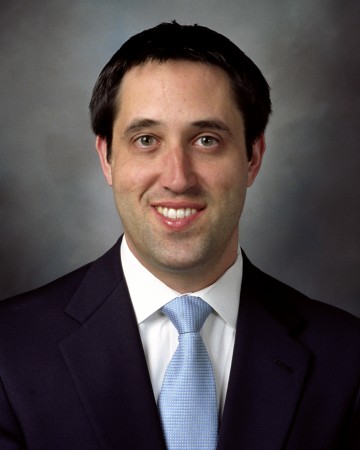
An 8-year-old boy was raped and sexually abused at the Artesia Detention facility in New Mexico but Immigration and Customs Enforcement officials at the facility did little to stop the abuse, said Bryan Johnson an immigration attorney who is representing the boy’s family. As the number of detention beds for migrant children and families grows rapidly, including two facilities in Texas, advocates and attorneys worry that abuse is increasing too.
The boy is from El Salvador and came across the Texas border with his mother and younger brother this summer. The family was sent to the detention facility in July after his family sought asylum. A few days later the child was raped by an older boy at the facility, said Johnson. When his mother reported the rape to an ICE official he told her there was “nothing that could be done about it.”
“Obviously the abuser is a very troubled child,” Johnson said. “He was in the same dorm room with my client and it’s my understanding that he abused other children as well.”
Johnson said there are at least 200 children at the Artesia facility and that the game room and bathrooms, where some of the abuse occurred, are not supervised. “There were actually many witnesses the second time my client was abused and this time ICE actually called the local police,” Johnson said. “But the police never spoke with the boy or his mother about what had happened.”
Johnson said it was especially terrible that after the boy’s ordeal, ICE wouldn’t allow the family to be released on humanitarian parole to relatives living in the United States. An immigration judge intervened and asked ICE to reconsider its decision. “They were finally released on a $10,000 bond in October, which is quite a lot for a bond,” Johnson said.
This is not the first case of abuse reported in family detention facilities recently opened to hold families seeking asylum. In October, several Central American women reported that guards sexually abused them at the Karnes County detention facility run by the private prison contractor GEO Group. The company signed a contract to hold as many as 530 women and children at the South Texas facility.
A recent report “Locking Up Family Values Again,” by the Lutheran Immigration and Refugee Service and Women’s Refugee Commission called the U.S. government’s rush to detain families an “inhumane practice.” Since the summer, the government has opened 1,200 beds at the Artesia and Karnes facilities to detain women and children. Another 2,400-bed family detention facility is slated for a 50-acre site just outside the town of Dilley, 70 miles southwest of San Antonio.
As long as children are held in detention there will be cases of abuse, Johnson said. The average age of children held at the Artesia facility is six. “There’s an inherent conflict of interest providing what’s best for children and keeping them locked up in detention,” he said.
Leticia Zamarripa, an ICE spokesperson, said in a statement that the agency notified the Artesia Police Department this summer upon being informed of an incident between two boys at the Artesia Family Residential Center.
Both boys and their mothers are no longer residing at the facility. Both families entered the United States illegally in early July; both were arrested by U.S. Border Patrol agents and transferred to the facility. Last month, an immigration judge heard both cases, and ordered the release of both families.
ICE remains committed to ensuring all individuals in our custody are housed and treated in a safe, secure and humane manner. ICE has a zero-tolerance policy for all forms of sexual abuse or assault, and our facilities are maintained in accordance with applicable laws and policies. Accusations of alleged unlawful conduct are investigated thoroughly and if substantiated, appropriate action is taken.















